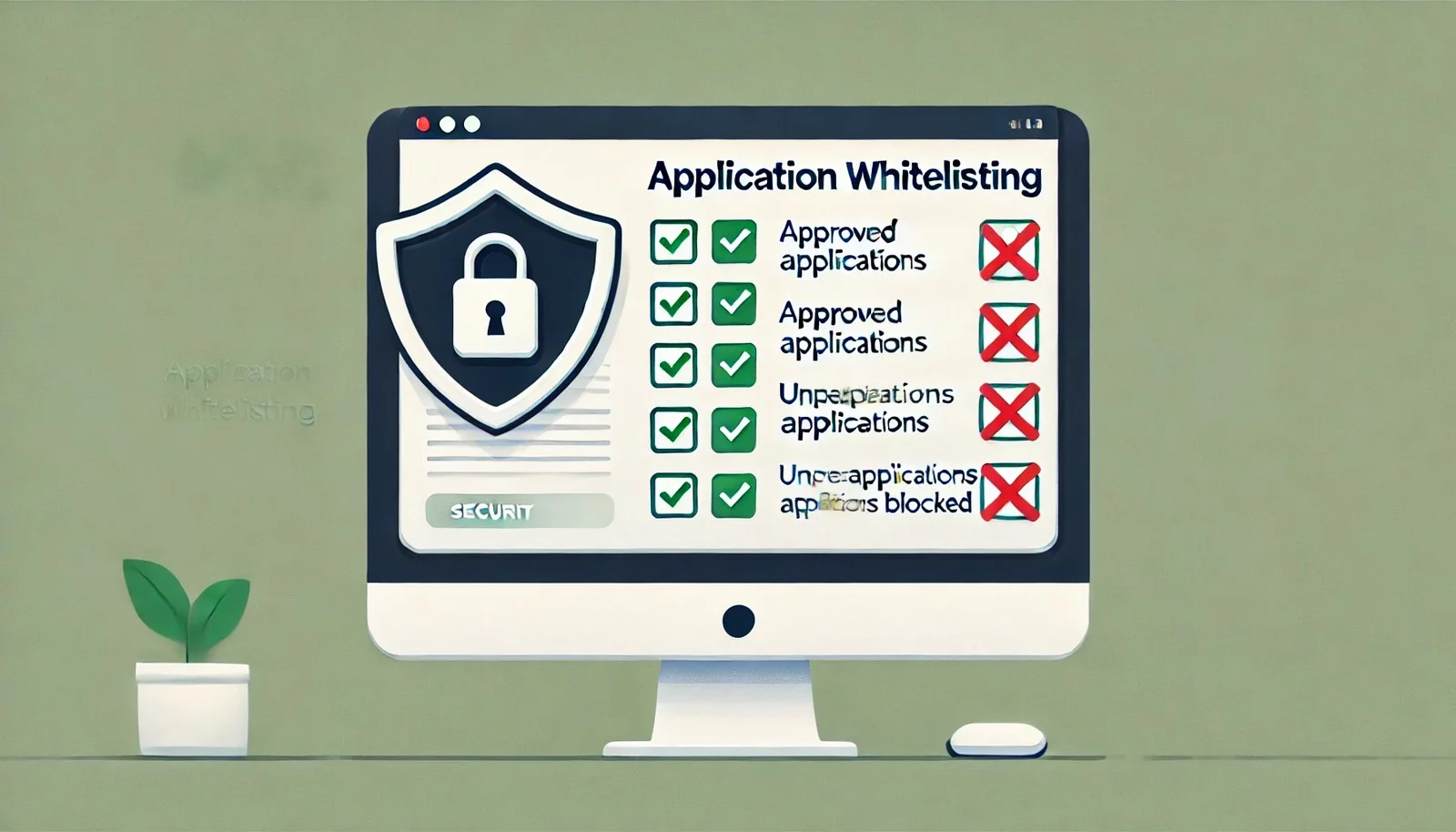Application Whitelisting
 (Representational Image | Source: Dall-E)
(Representational Image | Source: Dall-E)
Quick Navigation:
- Application Whitelisting Definition
- Application Whitelisting Explained Easy
- Application Whitelisting Origin
- Application Whitelisting Etymology
- Application Whitelisting Usage Trends
- Application Whitelisting Usage
- Application Whitelisting Examples in Context
- Application Whitelisting FAQ
- Application Whitelisting Related Words
Application Whitelisting Definition
Application whitelisting is a security measure that allows only pre-approved software to run on a system while blocking all unauthorized applications. It is used to prevent malware, ransomware, and unauthorized software from executing by maintaining a list of trusted applications. Application whitelisting is widely implemented in enterprises, government agencies, and critical infrastructure to enforce strict security policies.
Application Whitelisting Explained Easy
Imagine your parents only allow you to watch certain TV channels because they know they are safe. If a channel isn't on the list, you can't watch it. Application whitelisting works the same way—it only lets trusted apps run on a computer, keeping bad ones out.
Application Whitelisting Origin
The concept of application whitelisting emerged as a response to the increasing sophistication of cyber threats. Traditional antivirus solutions struggled to keep up with new malware variants, leading security experts to develop a stricter approach—allowing only trusted applications rather than blocking known threats.
Application Whitelisting Etymology
The term "whitelisting" originates from the idea of a "white list," which refers to a list of approved or trusted entities. It contrasts with "blacklisting," which is a list of blocked or untrusted items.
Application Whitelisting Usage Trends
With the rise of ransomware and zero-day attacks, application whitelisting has gained significant attention. Government agencies and businesses increasingly rely on this technique to protect sensitive data.
Application Whitelisting Usage
- Formal/Technical Tagging:
- Cybersecurity
- Endpoint Protection
- Zero-Trust Security - Typical Collocations:
- "Application whitelisting policy"
- "Whitelisting software solutions"
- "Application whitelisting for security compliance"
Application Whitelisting Examples in Context
- A financial institution enforces application whitelisting to prevent employees from installing unauthorized software.
- Government agencies use application whitelisting to prevent cyberattacks on classified systems.
- A company deploying application whitelisting ensures that only approved business software runs on corporate laptops.
Application Whitelisting FAQ
- What is application whitelisting?
Application whitelisting is a security technique that permits only pre-approved applications to run on a system. - How does application whitelisting improve cybersecurity?
It reduces the risk of malware infections and unauthorized software installations. - What are the challenges of application whitelisting?
Keeping the whitelist updated and managing exceptions can be complex. - How is application whitelisting implemented?
Organizations use security software to enforce whitelisting policies.
Application Whitelisting Related Words
- Categories/Topics:
- Cybersecurity
- Endpoint Security
- Threat Prevention
Did you know?
In 2017, the Australian Cyber Security Centre (ACSC) identified application whitelisting as one of the top four security strategies to prevent cyberattacks.
Authors | Arjun Vishnu | @ArjunAndVishnu

PicDictionary.com is an online dictionary in pictures. If you have questions or suggestions, please reach out to us on WhatsApp or Twitter.
I am Vishnu. I like AI, Linux, Single Board Computers, and Cloud Computing. I create the web & video content, and I also write for popular websites.
My younger brother, Arjun handles image & video editing. Together, we run a YouTube Channel that's focused on reviewing gadgets and explaining technology.
















Comments (0)
Comments powered by CComment